Wreaking havoc on the digestive system, Crohn’s disease is more common than you may think. In fact, many Americans live with this autoimmune condition and they don’t even know it. Many signs of Crohn’s disease apply to other ailments, which makes it hard to diagnose. So meet with a doctor if these common symptoms resonate with you. Don’t overlook one terrifying symptom you could confuse with other ailments (page 9).
1. You wake up sweating in the middle of the night

 Tossing and turning could be a digestive nightmare.| Demaerre/iStock/Getty Images Plus
Tossing and turning could be a digestive nightmare.| Demaerre/iStock/Getty Images Plus
This symptom could also be: hypothyroidism, diabetes, depression
Waking up covered in sweat with your heart racing may involve more than a bad dream. Night sweats are linked to digestive flareups as well as many medications prescribed for conditions like Crohn’s. Talk to your doctor about this symptom, since it can be long-term.
How to manage this symptom: Avoid caffeine, alcohol, and spicy foods.
Next: This symptom seems like the opposite of Crohn’s.
2. You experience constipation
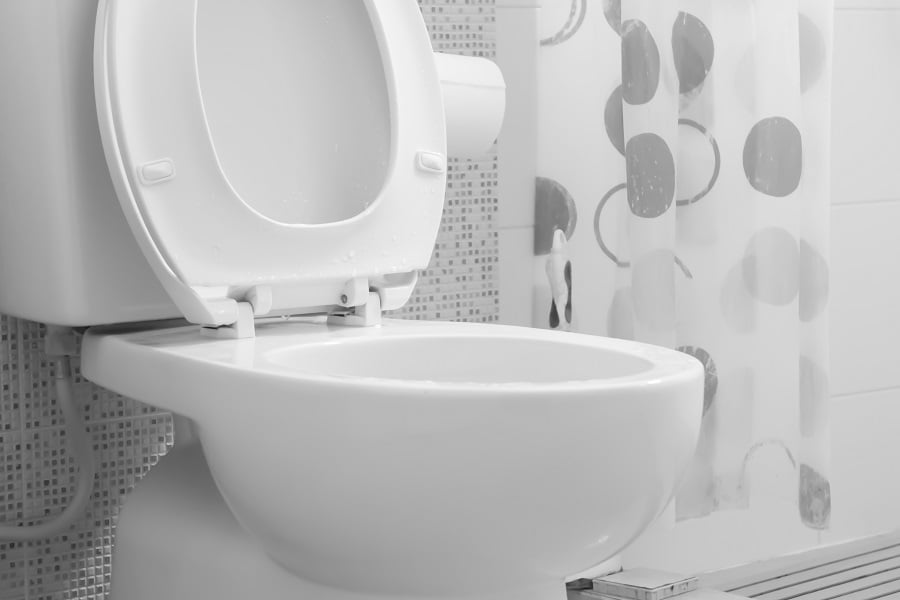
 This annoying symptom may be a sign of something more serious. | ThanaphatSomwangsakul/iStock/Getty Images
This annoying symptom may be a sign of something more serious. | ThanaphatSomwangsakul/iStock/Getty Images
This symptom could also be: hypoglycemia, menopause, cancer
If you have IBD, you might think diarrhea is your main concern. Although it’s not as common, constipation does occur in Crohn’s patients.
How to manage this symptom: Exercise and eat more fiber.
Next: Older adults may brush off this common ailment.
3. Your lower back aches constantly

 Few things are most distracting than constant lower back pain. | Source: iStock
Few things are most distracting than constant lower back pain. | Source: iStock
This symptom could also be: spinal infection, abdominal aneurysm, cancer
Your lower back is home to a lot of joints and nerves — and they all can be irritated by Crohn’s disease. It’s a subtle ailment. But if you have unexplained lower backaches and other digestive symptoms, you may want to see your doctor.
How to manage this symptom: Try heat/ice therapy.
Next: Are you exhausted all the time?
4. You feel tired all the time

 Being constantly tired may be a bad sign. | iStock/Getty Images
Being constantly tired may be a bad sign. | iStock/Getty Images
This symptom could also be: sleep apnea, fibromyalgia, food allergies
Fatigue is a symptom of a lot of illnesses (including chronic fatigue syndrome itself), and Crohn’s is no exception. The No. 1 cause of the exhaustion is likely the bowel disease itself, which basically allows your body to wage a war against itself. That would make anyone tired.
How to manage this symptom: Exercise. Avoid sugar, alcohol, and caffeine.
Next: Can’t button your pants due to all that bloat?
5. Your belly is perpetually bloated
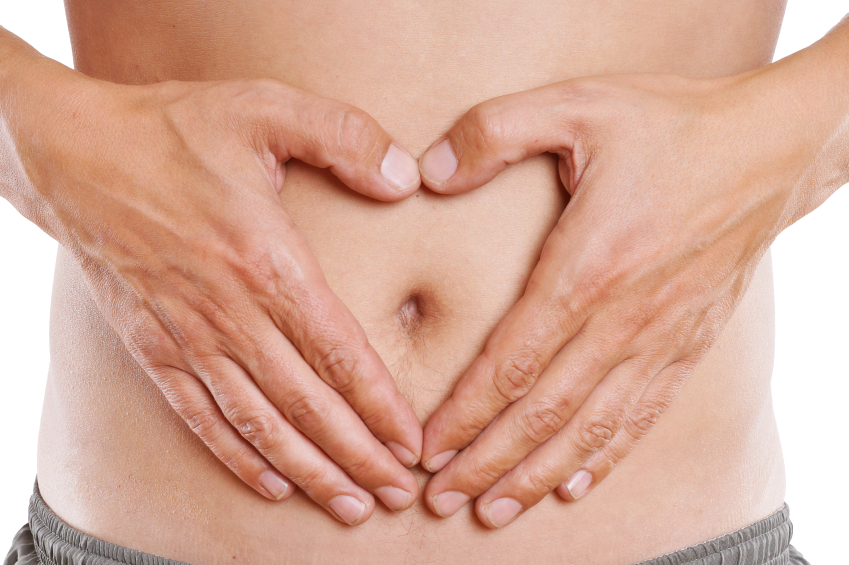
 Bloating shouldn’t be an every day occurrence. | iStock/Getty Images
Bloating shouldn’t be an every day occurrence. | iStock/Getty Images
This symptom could also be: lactose intolerance, liver disease, gallstones
We’ve all experienced bloating at some point, but if you don’t have a digestive disorder, the problem will clear up. But for people with Crohn’s, the bloat is nearly constant, often painful, and worrisome. Something as simple as eating the wrong thing or being dehydrated can cause it.
How to manage this symptom: Avoid carbonated drinks, chewing gum, and gassy veggies.
Next: This deficiency may spell disease.
6. You lack Vitamin D
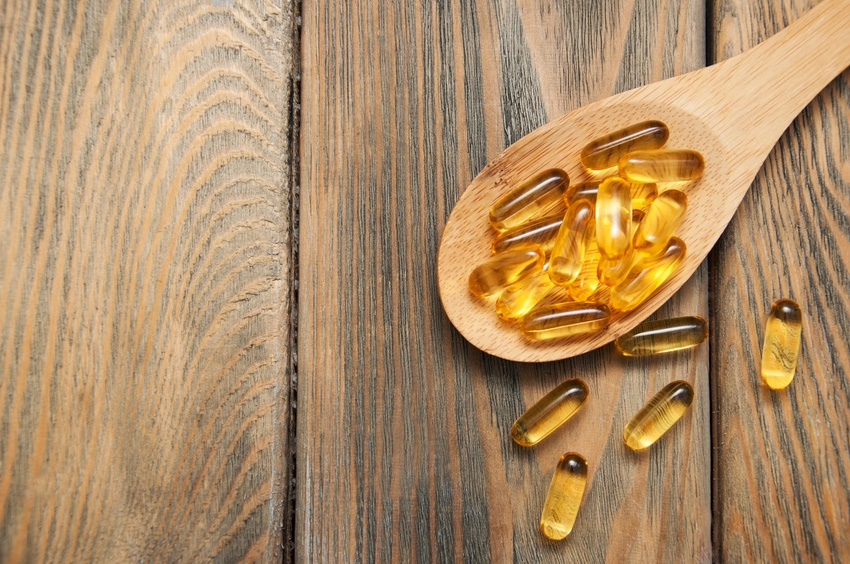
 Get outside or take a supplement to make sure you’re getting enough of this vitamin.| iStock.com/Ls9907
Get outside or take a supplement to make sure you’re getting enough of this vitamin.| iStock.com/Ls9907
This symptom could also be: cystic fibrosis, celiac disease
Research suggests up to 30% of Crohn’s patients are deficient in Vitamin D. You may recognize this deficiency before you associate it with Crohn’s; the conditions have similar symptoms. However, a Vitamin D deficiency can also lead to bone loss and impaired wound healing.
How to manage this symptom: Take a supplement recommended by your doctor.
Next: Digestive disorders can wreak havoc on your skin.
7. Painful sores surface on your skin

 If your skin doesn’t look right, it may be time to visit the doctor. | iStock.com
If your skin doesn’t look right, it may be time to visit the doctor. | iStock.com
This symptom could also be: cancer, infection, shingles
If you have Crohn’s disease, you suffer from inflammation — and it’s not always limited to your digestive tract. Many patients also experience skin issues like painful sores and tender lumps.
How to manage this symptom: Control your diet and consider seeing a specialist.
Next: A gross thing to feel inside your mouth
8. You’re dealing with painful canker sores
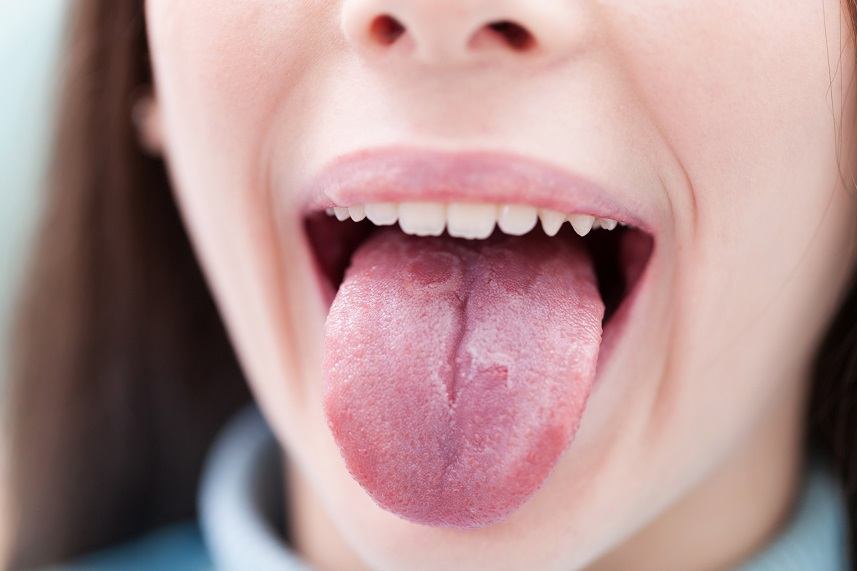
 Mouth sores are gross to see and even more gross to feel.| patrisyu/iStock/Getty Images
Mouth sores are gross to see and even more gross to feel.| patrisyu/iStock/Getty Images
This symptom could also be: poor immune system, vitamin deficiency, HIV
Canker sores are another unfortunate symptom most people don’t consider. The sores have a foundation in the immune system, so when your body is inflamed, they tend to show up more frequently.
How to manage this symptom: Avoid acidic foods. Swish a saltwater rinse in your mouth to speed up healing.
Next: This symptom may have you seeing red.
9. Your eyes become red and irritated
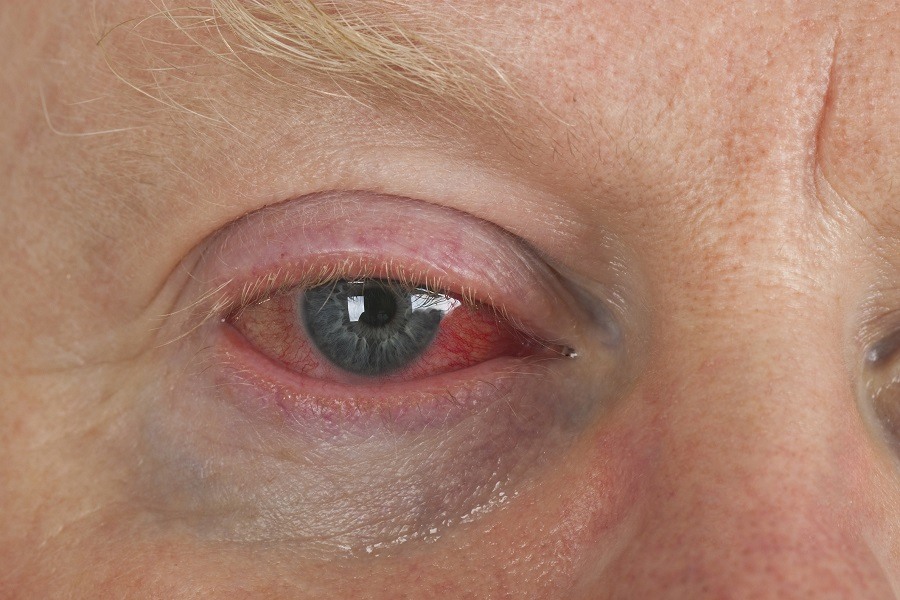
 It’s hard to see Crohn’s, but your eyes can help. | Lightstar59/iStock/Getty Images
It’s hard to see Crohn’s, but your eyes can help. | Lightstar59/iStock/Getty Images
This symptom could also be: corneal ulcer, conjunctivitis, glaucoma
Your eyes might be the last parts you expect to be affected by Crohn’s disease. But about 10% of Crohn’s patients have frequently dry, red eyes. Since the tissues in your eyes are similar to the tissues in other parts of your body, inflammatory diseases that wreak havoc on your bowels could easily do the same thing to your eyes.
How to manage this symptom: Apply a warm compress.
Next: You’ll want to cut these tags off.
10. Skin tags appear on your skin

 Examine your skin for this embarrassing condition. | Wavebreakmedia/Getty Images
Examine your skin for this embarrassing condition. | Wavebreakmedia/Getty Images
This symptom could also be: obesity, diabetes, cancer
These benign growths may make you want to hide, but you can’t ignore them. Dr. Monika Fischer, a gastroenterologist with Indiana University, told Reader’s Digest, “Little known signs of Crohn’s disease include large perianal skin tags.” Skin tags can be caused by constipation and diarrhea, which can subsequently result in Crohn’s disease.
How to manage this symptom: Consider home remedies or see a doctor.
Next: 20% of Crohn’s patients have this condition.
11. You develop arthritis
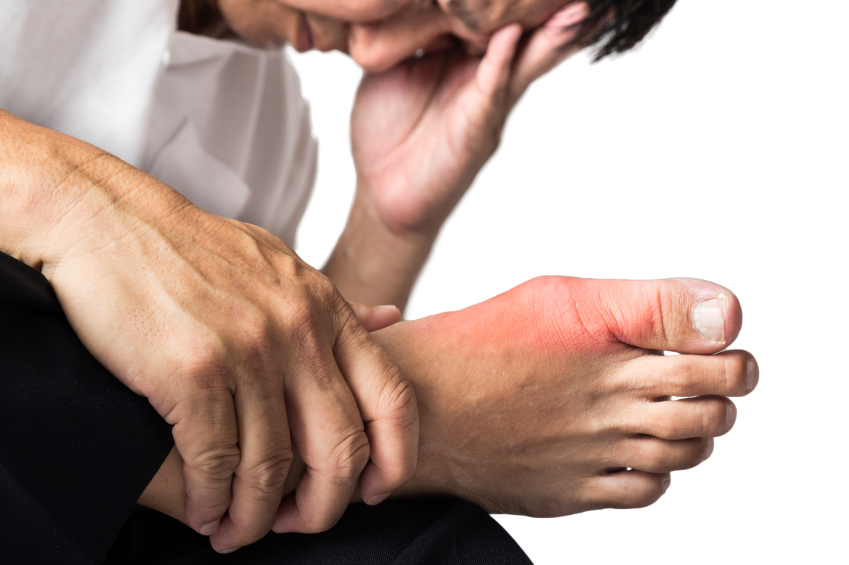
 Patients with Crohn’s disease often experience joint pain.| iStock.com
Patients with Crohn’s disease often experience joint pain.| iStock.com
This symptom could also be: autoimmune disorders
Crohn’s disease can attack the musculoskeletal system, too. Take this symptom seriously. When your immune system attacks this part of your body, you may get spondyloarthritis, a fancy name for spine and joint pain. You’ll need to find therapy for both conditions.
How to manage this symptom: Be active every day and maintain a healthy weight.
Next: You may have a blood disorder due to Crohn’s.
12. You’re diagnosed with anemia
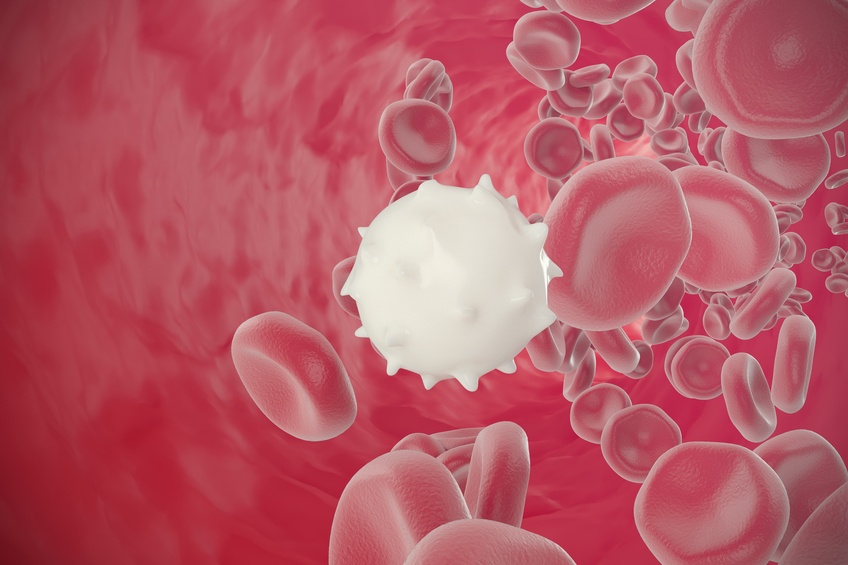
 If you become anemic, it may be an early sign.| iStock.com/Rost-9D
If you become anemic, it may be an early sign.| iStock.com/Rost-9D
This symptom could also be: bone marrow disease, kidney failure, iron deficiency
Since Crohn’s can damage the lower part of the intestine, where B vitamins are absorbed, you could easily become anemic if you have this bowel disease. But many people don’t make this connection, because anemia is a symptom of many other things (as well as an issue of its own).
Take anemia seriously. Your heart has to pump more blood to make up for its lack of oxygen. When this occurs, your heart could become enlarged or even fail altogether.
How to manage this symptom: Consult your doctor about iron supplements and other treatments.
Next: Don’t automatically blame food poisoning.
13. You’re plagued by diarrhea

 Are you visiting the bathroom more often than usual? | ttatty/iStock/Getty Images
Are you visiting the bathroom more often than usual? | ttatty/iStock/Getty Images
This symptom could also be: food poisoning, giardia, colonic polyps
Frequent, recurring diarrhea is one of the most common symptoms of a digestive disorder like Crohn’s. But since many other things can cause it, some patients take awhile to make the connection.
How to manage this symptom: Drink more fluids. Consider taking probiotics.
Next: Was it something you ate?
14. Your stomach cramps often

 An upset stomach may be misleading. | iStock/Getty Images
An upset stomach may be misleading. | iStock/Getty Images
This symptom could also be: acid reflux, gas, stomach ulcers, endometriosis
Abdominal pain is one of the most common symptoms of Crohn’s, but what some people don’t know is that that cramps can occur anytime, whether you’re in the middle of a flare up or in remission. So if you frequently feel abdominal pain for no clear reason, it may be a bad sign.
How to manage this symptom: Try using a heating pad, and drink peppermint tea.
Next: Don’t mix up your digestive disorders.
15. The difference between Crohn’s and ulcerative colitis
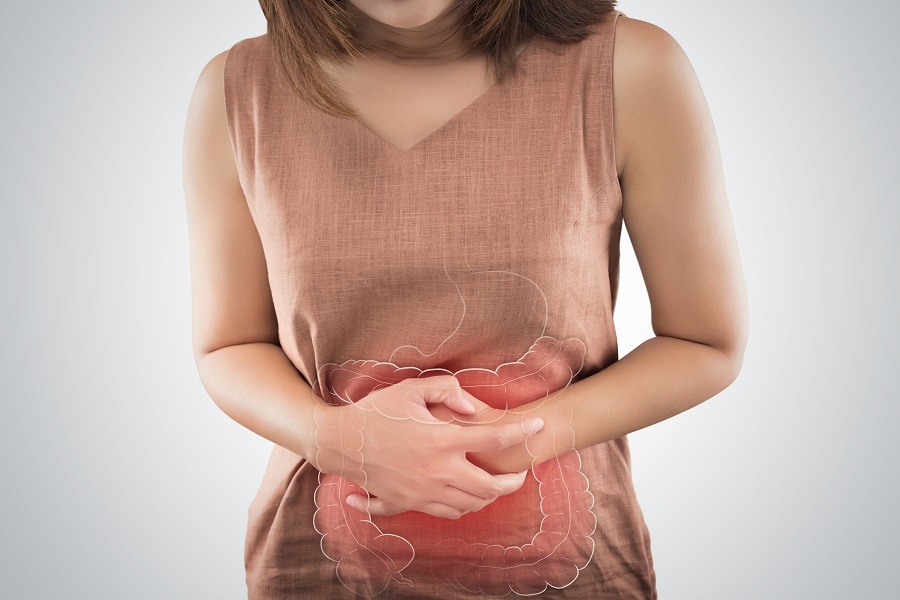
 It can be hard to spot Crohn’s disease. | Tharakorn/iStock/Getty Images
It can be hard to spot Crohn’s disease. | Tharakorn/iStock/Getty Images
Digestive disorders are quite common, and they’re also very similar. Crohn’s disease is often diagnosed as ulcerative colitis, which primarily causes inflammation in your large intestine as opposed to Crohn’s, where inflammation is typically found where the small and large intestines meet.
Crohn’s and ulcerative colitis are both categories of Inflammatory Bowel Disease, or IBD, a chronic condition that affects around 1.6 million Americans.
Next: Know what kind of Crohn’s you have.
16. The 5 types of Crohn’s disease

 There are five types of Crohn’s. | DragonImages/iStock/Getty Images
There are five types of Crohn’s. | DragonImages/iStock/Getty Images
As if determining between Crohn’s, ulcerative colitis, and general IBD wasn’t confusing enough, there are five types of Crohn’s disease to worry about. They are:
- Ileocolitis, the most common form that affects both the large and small intestine.
- Iletus, which affects the ileum, or small intestine.
- Gastroduosenal Crohn’s, which affects the stomach and the beginning of the small intestine.
- Jejunoileitis, which affects the upper half of the small intestine.
- Crohn’s colitis, which only affects the colon.
Clearly, it’s easy to see why symptoms are often misdiagnosed or ignored entirely. If you consistently suffer from any of the following, you might want to consider getting checked.
Next: When you were this age, did you experience symptoms?
17. These symptoms often manifest in your 20s

 Even young people may see symptoms of Crohn’s disease. | Astaro/iStock/Getty Images
Even young people may see symptoms of Crohn’s disease. | Astaro/iStock/Getty Images
While you can be diagnosed with Crohn’s disease at any age, it usually develops most during your 20s. If you have a family history of it, you’re much more likely to get it. And while there is no cure, you can manage the condition with a special diet and other lifestyle changes.
Check out The Cheat Sheet on Facebook!
Source: Read Full Article
